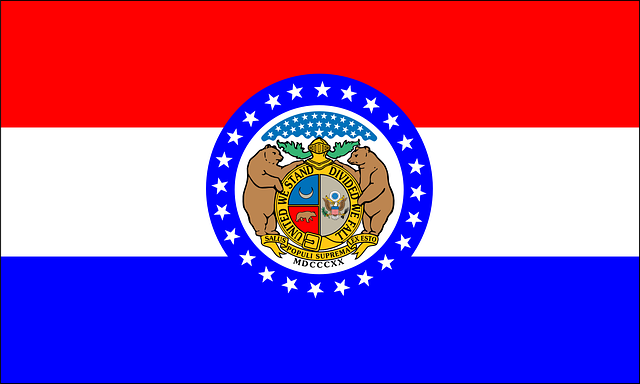Share This Article:

Case Lesson: Mo. Exclusive Remedy Rules Prevent Health Care Providers from Suing Insurers, Employers for Unpaid Medical Bills
25 Jul, 2023 Frank Ferreri

When an insurer or an employer doesn't pay the bill for an injured employee's medical care, health care providers must pursue their remedies under the Workers' Compensation Act.
Case: Orthopedic Ambulatory Surgery Center of Chesterfield, LLC, v. Sharpe Holdings, Inc., 2023 WL 4711676 (Mo. Ct. App. 07/25/23)
What Happened: Health care providers rendered medical care pursuant to the Missouri Workers' Compensation Act to injured workers at the request of employers and the employers' workers' compensation insurance companies.
The issue that arose is whether the providers, after receiving partial payment for the medical care they provided, could pursue claims against the employers and insurers for the remaining balance of the charges or whether their recourse was exclusively limited to the procedures and remedies available under the act.
Workers' Comp 101: In Missouri, "accident" is defined as “an unexpected traumatic event or unusual strain identifiable by time and place of occurrence and producing at the time objective symptoms of an injury caused by a specific event during a single work shift.”
The court ruled in favor of the employers and insurers, concluding that "the procedures established by the Act and its associated regulations provide an exclusive remedy before the Division for resolving disputes involving medical fees and charges in Workers’ Compensation cases."
The providers appealed.
Rule of Law: Under Missouri's Workers' Compensation Act, providers' “fees and charges under this chapter shall be fair and reasonable” and “shall be subject to regulation by the division.”
What the Court Said: The state legislature meant for disputes regarding payments of charges related to workers' compensation to be handled under the Workers' Compensation Act.
"The legislature's intent is manifest that this specific type of dispute regarding medical bills for treatment provided 'under this chapter' is to be decided by the Division or the Commission," the court wrote. "It is noteworthy that the legislature has also defined the legal standards governing such disputes — whether the bills are 'fair and reasonable' and 'usual and customary.'"
Preemption Argument
The court rejected the providers' argument that the legislature did not clearly preempt its common law claims to recover what it was owed from the employers and insurers, highlighting that "in the world of workers' compensation, the relationships are legally altered."
When a person is injured outside the workers' compensation context, that person typically seeks medical care directly from a provider, and the provider seeks payment from the person or the person's insurance company.
In workers' compensation, things are different.
"The employer is statutorily required to provide and pay for medical care for the injured worker and the employer gets to select the HCP," the court wrote. "When HCPs provide medical treatment under the Act, they enter a comprehensive statutory scheme under which the HCPs acquire certain rights and assume certain responsibilities and limitations beyond the common law."
Primary Jurisdiction
Additionally, the court noted that the primary jurisdiction doctrine, under which courts will not decide a controversy involving a question within the authority of an administrative tribunal until after that tribunal has rendered its decision: 1) where administrative knowledge and expertise are demanded; 2) to determine technical, intricate fact questions; and 3) where uniformity is important to the regulatory scheme applied.
The court reasoned that the doctrine applied in this case so as to leave the decision in the Division's -- rather than the court's -- hands.
"The Division is well-versed in medical matters and statutorily charged with determining whether bills are fair and reasonable and usual and customary," the court wrote. "Allowing parallel litigation on these issues runs contrary to the uniformity sought by this regulatory scheme."
The Takeaway: In Missouri, common law is not an avenue health care providers can pursue to recover unpaid medical bills in workers' compensation cases.
california case management case management focus claims compensability compliance courts covid do you know the rule emotions exclusive remedy florida FMLA fraud glossary check health care Healthcare hr homeroom insurance insurers iowa leadership medical NCCI new jersey new york ohio osha pennsylvania roadmap Safety state info technology texas violence WDYT west virginia what do you think women's history women's history month workcompcollege workers' comp 101 workers' recovery Workplace Safety Workplace Violence
Read Also
About The Author
About The Author
-
Frank Ferreri
Frank Ferreri, M.A., J.D. covers workers' compensation legal issues. He has published books, articles, and other material on multiple areas of employment, insurance, and disability law. Frank received his master's degree from the University of South Florida and juris doctor from the University of Florida Levin College of Law. Frank encourages everyone to consider helping out the Kind Souls Foundation and Kids' Chance of America.
More by This Author
Read More
- Apr 16, 2025
- Frank Ferreri
- Apr 16, 2025
- Claire Muselman
- Apr 16, 2025
- Chris Parker
- Apr 16, 2025
- Chriss Swaney
- Apr 15, 2025
- Claire Muselman
- Apr 14, 2025
- Frank Ferreri




